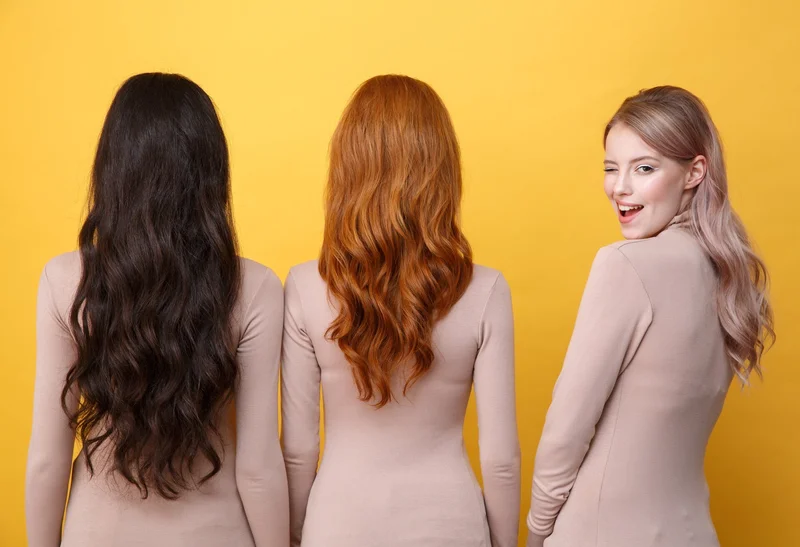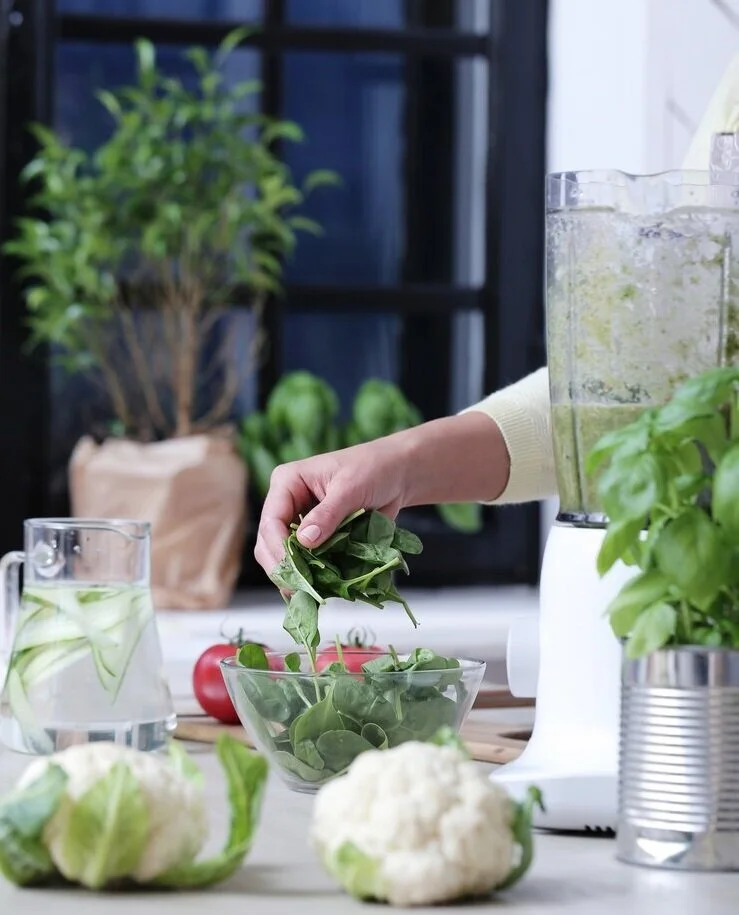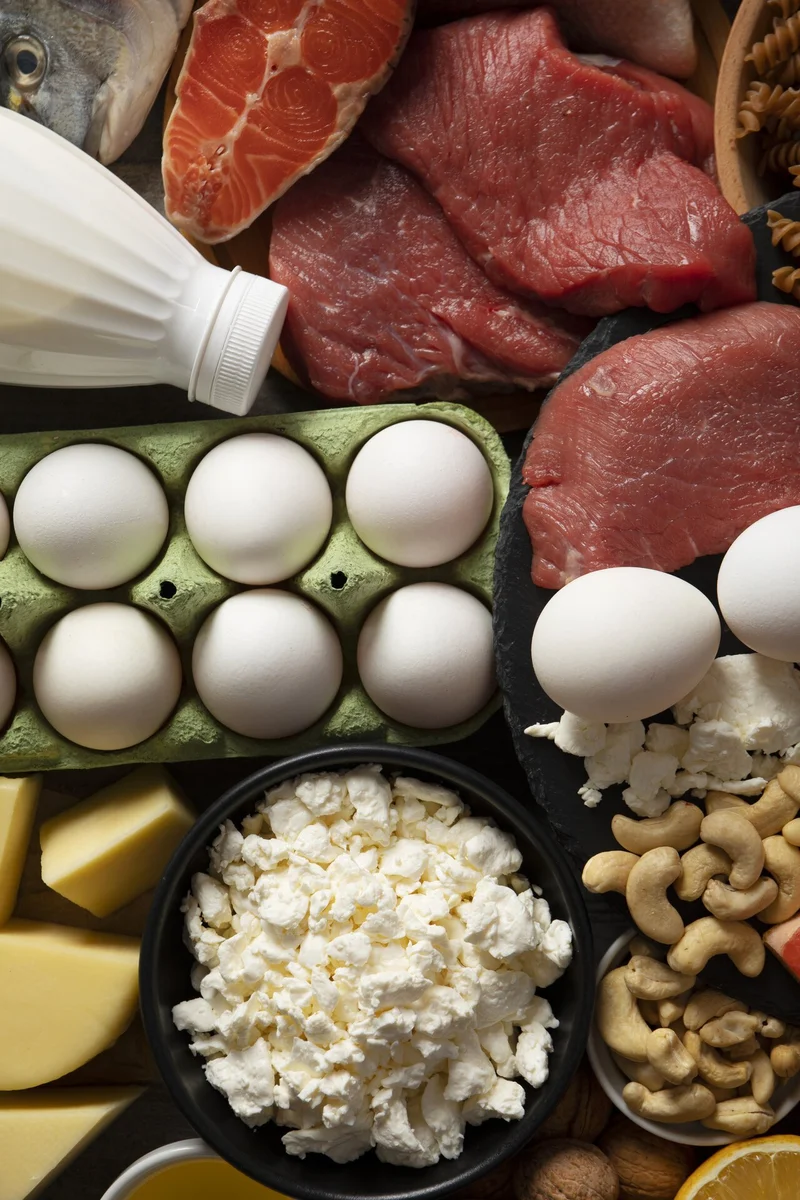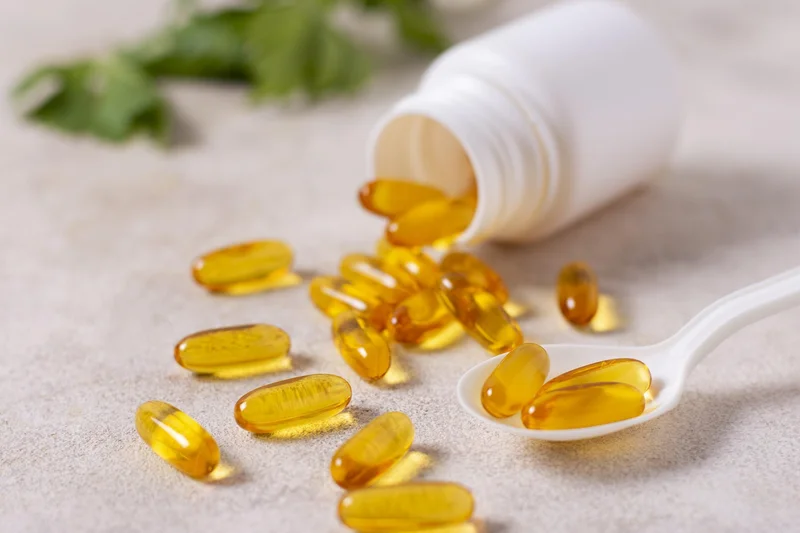Vitamins for hair loss and thinning

Photo source: freepik.com
Anyone can help their own hair with changes in their diet.
The body requires certain nutrients to grow healthy hair strands. Over time, vitamin deficiencies can potentially cause hair to become thinner and not look as healthy as it once did. According to experts, six factors influence hair growth and thickness.
Iodine
Photo source: freepik.com
According to statistics, about 10% of postmenopausal women suffer from iodine deficiency. "Sometimes patients notice hair loss," says Annabelle Garcia, a dermatologist at the University of Texas Southwestern Medical Center. Iodine is a key ingredient for hair follicles, and a deficiency can be stressful for the body and lead to stunted hair growth and hair loss.
Daily norm – 8 mg
Where to find it: “Iodine is found in unrefined grains, spinach, lean red meat, chicken and fish, tofu and beans. Although some may need to take special medications, says dermatologist Marisa Garshick from Weill Cornell Medical College in New York. And whenever possible, enjoy foods rich in vitamin C (oranges, strawberries, broccoli, bell peppers). This increases iodine absorption by 6 times, according to ACS Omega.
Zinc
Hair loss is a sign of zinc deficiency. Fortunately, replenishing this substance in the body stimulates their growth, says a review in the journal Dermatology and Therapy. “Zinc helps the proteins involved in structuring hair,” explains Dr. Garshick.
Daily norm - 8 mg
Where to find it: Beef, fortified breakfast cereals, pork, turkey breast, pumpkin seeds, cheddar cheese, lentils, peanuts and shrimp.
Folic acid
Like iodine, folic acid is a building block for new strands, says Dr. Garshick. And despite the lack of research, there is some evidence that a lack of folic acid can lead to hair loss, says the journal Dermatology and Therapy.
Daily norm – 400 mg
Where to find it: Leafy greens, Brussels sprouts, fortified breakfast cereals, avocados, romaine lettuce, black beans and kidney beans.
Protein
Photo source: freepik.com
“Protein intake is very important for maintaining hair and nails,” explains Dr. Garshick. The fact is that the amino acids contained in such foods help the body absorb iodine and zinc, which naturally leads to hair growth, notes a study from Baylor College of Medicine.
The daily norm is 0.8 grams of protein per kilogram of adult weight. But to optimize your hair, it’s a good idea to eat 1 - 1.2 grams per kilogram of weight. Thus, a woman weighing 75 kilograms should consume 75 to 90 grams of protein daily.
Where to find it: Lean red meat, poultry, seafood, Greek yogurt, cottage cheese, milk, eggs, beans, tofu, nuts and various seeds.
Biotin
The B vitamin biotin is involved in the production of keratin. It is a key protein involved in the formation of the outer layer of hair and nails. “People with biotin deficiency have been found to have thinning hair and broken nails. Therefore, it is believed that by replenishing the balance of biotin, you can strengthen both your hair and nails, noted Dr. Garshick. “But the interesting thing is that most of us are not actually biotin deficient.” There is still no clear opinion among scientists about whether biotin supplements really affect the results. But you can do a blood test to check your biotin levels.
Daily norm – 30 mcg
Where to find it: eggs, salmon, pork, sunflower seeds, sweet potatoes, almonds, tuna, broccoli and spinach.
Vitamin D
Photo source: freepik.com
People experiencing hair loss often have low levels of vitamin D, according to the journal Dermatology and Therapy. However, experts cannot fully say why this happens.
Daily norm – 600 IU
Where to find it: Vitamin D is best taken in dosage forms. But you can also help yourself with food such as eggs, salmon, milk and grains. And of course, we should not forget that when the sun shines on our skin, our body is naturally enriched with vitamin D.